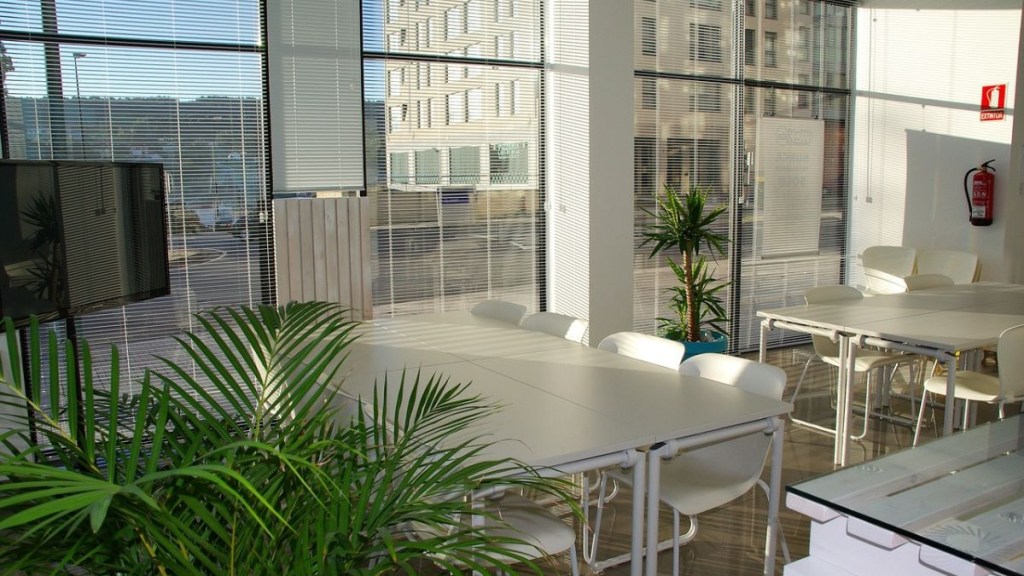Co-working startups such as Awfis, IndiQube, Smartworks, and BHIVE, are scaling their fit-out businesses in addition to their core operation of providing managed officespaces, as demand for aethetically-pleasing workspaces soar among new-age companies, which prefer customised workspaces with a short-term lease.
Fit-out services inlcude installation of floors, ceiling, interiors, furniture and more. Traditionally, the fit-out market has been a fragmented space with a large number of unorganised players and largely dominated by large developers, design firms, and property consultants.
“The fact that the core business of flexible workspace operators is to design, build, and manage offices for multiple customers allows them to hold fit-out inventory, well-negotiated vendor contracts, set templates and processes in place,” argued Ananta Capital-backed Smartworks in its IPO documents, talking about its market oppurtunity in the fit-out-as-a-service space.
PeakXV-backed Awfis, which debuted in the public market in May, generates about 25% of its overall revenue from its fit-out business. In FY24, it recorded about Rs 212 crore from fit-outs projects, while the total revenue was Rs 850 crore. Within this Rs 212 crore, nearly 50% came from third-party clients who engaged Awfis solely for fit-out services.
“We believe the fit-out industry will grow between 12-13% over the next few years, while our fit-out business will grow between 13-15% because of our ability to deliver services faster,” said Awfis chairman and MD Amit Ramani, in an interaction with FE. He added that while the indusry gross margin in the fit-out business is between 8-10%, Awfis keeps an average margin of around 15% in these projects.
The company started building its fit-out business about three years ago and currently employs about more than 60 people in its design team and about 120 people in the project, construction and procurement management team.
Not just Awfis, all workspace operators agree that there is a high demand for bespoke interiors with customisation options from new-age tech startups, mid-sized GCCs entering India, and even established enterprises looking to revamp their workspace. IndiQube’s co-founder, Meghna Agarwal, also sees an opportunity in developing fit-outs for modernising older properties in cities like Mumbai, which has a large inventory of outdated properties.
“India’s commercial real estate market currently stands at nearly 800 million square feet, with an annual absorption of 40-50 million square feet. However, the real potential isn’t limited to new fitouts — it also lies in the renovation and retrofitting of older office spaces,” she said.
As for competition with traditional players in the fit-out space, the flexible workspace operators have full-time delivery teams on their payroll, who assist in building cost and design efficient offices at a quick pace and allow them to effectively compete with older players, Smartworks pointed out in the documents. The company ventured into fit-out-as-a-service space this year through a project in Powai, Mumbai, spanning 0.18 million square feet and a seat capacity of 3,790.
While the average cost of fit-outs is around Rs 1,800-2,000 per square feet, for highly customised projects, the rates are higher. For example, for Rakuten’s office in Bangalore fit-out costs reached as high as Rs 8,000 per square feet due to extreme customisation.
While Rakuten’s office is an exception, fit-out costs have increased overall in the last few years. Aditya Verma, founder and CEO of The Office Pass noted that fit-out costs have risen from Rs 1,400 to Rs 1,800-2,000 per square feet in the last six years, and for highly customised managed offices, up to Rs 2,700. “Six years ago, this entire cost was absorbed by us, but today, most property owners are willing to share the cost, particularly for longer-term tenants,” he added.
Meanwhile, Shesh Rao Paplikar, founder-CEO of Bengaluru-based BHIVE Workspace, points out that lock-in periods are higher across the industry for highly customised built-to-suit projects. “While we’ve successfully completed large customised projects, like the Rs 75 crore Nuvama deal in Mumbai’s BKC, there are fewer exceptions like this. Most mid-sized GCCs and enterprises are looking for flexibility and shorter lock-in periods, while having the convenience of working with one entity than a host of vendors,” he said.

